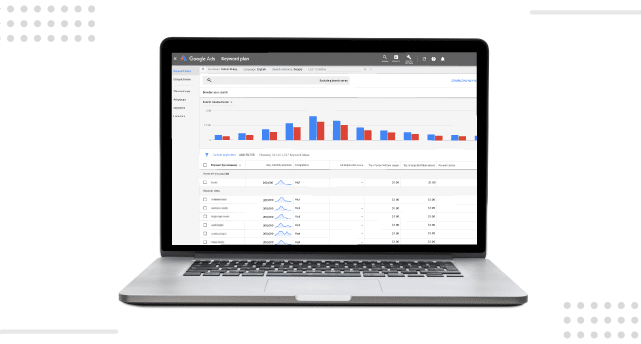Competitor website analysis for Law firms
In the words of Sun Tzu, “To know your Enemy, you must become your Enemy.” His philosophy also holds true in digital marketing. You want to emulate the areas where your competitors are succeeding and avoid their pitfalls.
Your goal is to reverse engineer the most successful elements of your competitors’ SEO strategies into your own strategy. Typically, you should research at least three other law firms to give you a richer analysis.
Competition market research includes 3 main activities

1. Searching for Their Top Keywords
Manual keyword analysis for your website is difficult because your competitors might be ranking for hundreds of keywords. Several tools are available online to help you find out what keywords your competitors are ranking for. Here are some suggestions for free and free trial tools:
Once you get a list of competitor keywords, you need to look for valuable keywords that you do not rank for and high-volume keywords where you already rank but want to rank higher.
As you look through terms, you also want to pay attention to the keyword difficulty. It might be labeled slightly differently, but typically, you want to take note of those with high search volume, moderate difficulty in ranking, and relevant to your area of law.
Finally, take note of your competitors’ most successful keywords so you can also target them. If you are looking for an seo company for lawyers, contact us today.
2. Reviewing Their Content
You can manually visit a competitor’s webpage and review their content, but if you want to really understand what’s doing well for them, use a tool like MOZ’s free Link Explorer.
When you enter your competitors’ domain and search, the Top Pages tab will reveal the pages that have received the most backlinks. You can use this list as a jumping-off point for content you want to emulate or improve upon.
3. Backlink Research
Link Explorer provides you with the number of backlinks for each page, but for your competitor’s research, you need to know what those links are. You can also use Link Explorer to find which backlinks are linked to your competitors and not to you. You can see where and how other firms are earning their backlinks.
Keyword Research

It’s crucial that you research your competitors before you start randomly looking for keywords for your web content. When you know what is working for other law firms, you have a better idea of which keywords make sense for you to target.
Several keyword research tools exist. Some cost money, and some are free. Google Ads Keyword Planner is a powerful tool, and it’s free! You do have to set up a Google account to access it, but you do not have to run a Google Ads campaign.
Before using competitors’ keywords in your site content, you need to analyze their effectiveness with some tools. For example, the difference between the words attorney and lawyer can be massive.
An attorney has an estimated 11,100,000 local monthly searches, and the lawyer has 6,120,000. Also, the best keywords depend on the visitors your firm is seeking. A lawyer is typically better for injury-related terms (car accident lawyer, brain injury lawyer), while an attorney normally works better for business-related terms (bankruptcy attorney, tax attorney).

After doing competitor research, you should have a few keywords in mind that you want to rank for. These could be specific practice areas or blog topics related to your law firm. Within Google’s Keyword Planner, you will find two different tools: Discover New Keywords and Get Search Volume and Forecasts.
You want to review the volume and forecasts for the keywords you found during your competitor research. However, you can also enter one or two keywords to Discover New Keywords. Regardless of which path you take, you will see the same Keyword Results Page.
Discovering new keywords can help you learn which variations of your keyword get searched for most often, giving you other keywords, questions, and topics you might have missed.
On the Keyword Results page, you will notice that search volume varies greatly among keywords. Remember that the lower the search volume, the less competitive a keyword is, which gives you a better chance of ranking.
This low-hanging fruit can be advantageous for you. However, you also want to target keywords your audience is searching for, so it’s in your best interest to target both high- and low-volume keywords.
Pro Tip: Target long-tail keywords because they have less competition and lower difficulty for ranking. Long-tail keywords are typically phrases that consist of multiple words. Don’t underestimate them because they often convert to clients better because searchers have more intent with specific terms and questions.
For example, someone searching for a Dallas Divorce Lawyer might be browsing. However, someone who searches “what to do when my spouse won’t move out during a divorce,” likely has an immediate need for a divorce lawyer.
It is important to note that Google changes its algorithm frequently, often as a response to abuse by spammers. Sometimes, algorithm changes negatively impact site ranking. The effects can be more detrimental if your SEO is out of date.
In general, if you follow Google’s advice and focus on users instead of search engines, you’ll have a good chance of survival when updates roll out.




